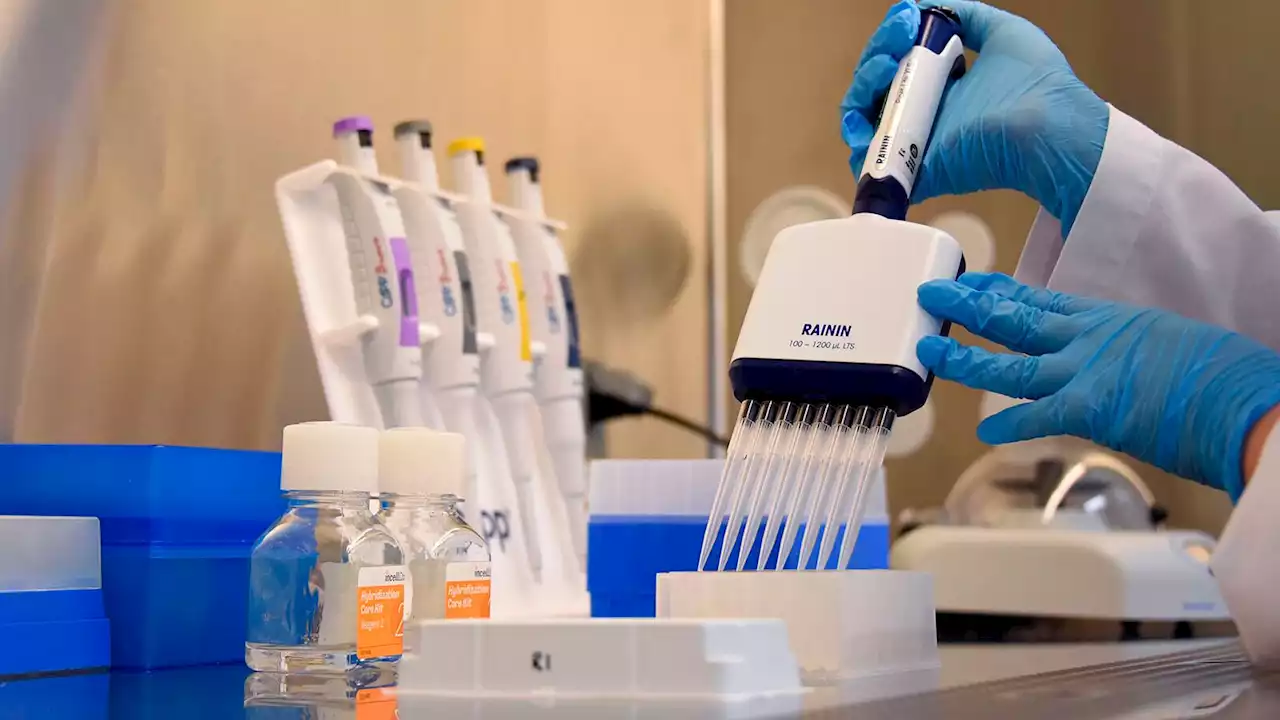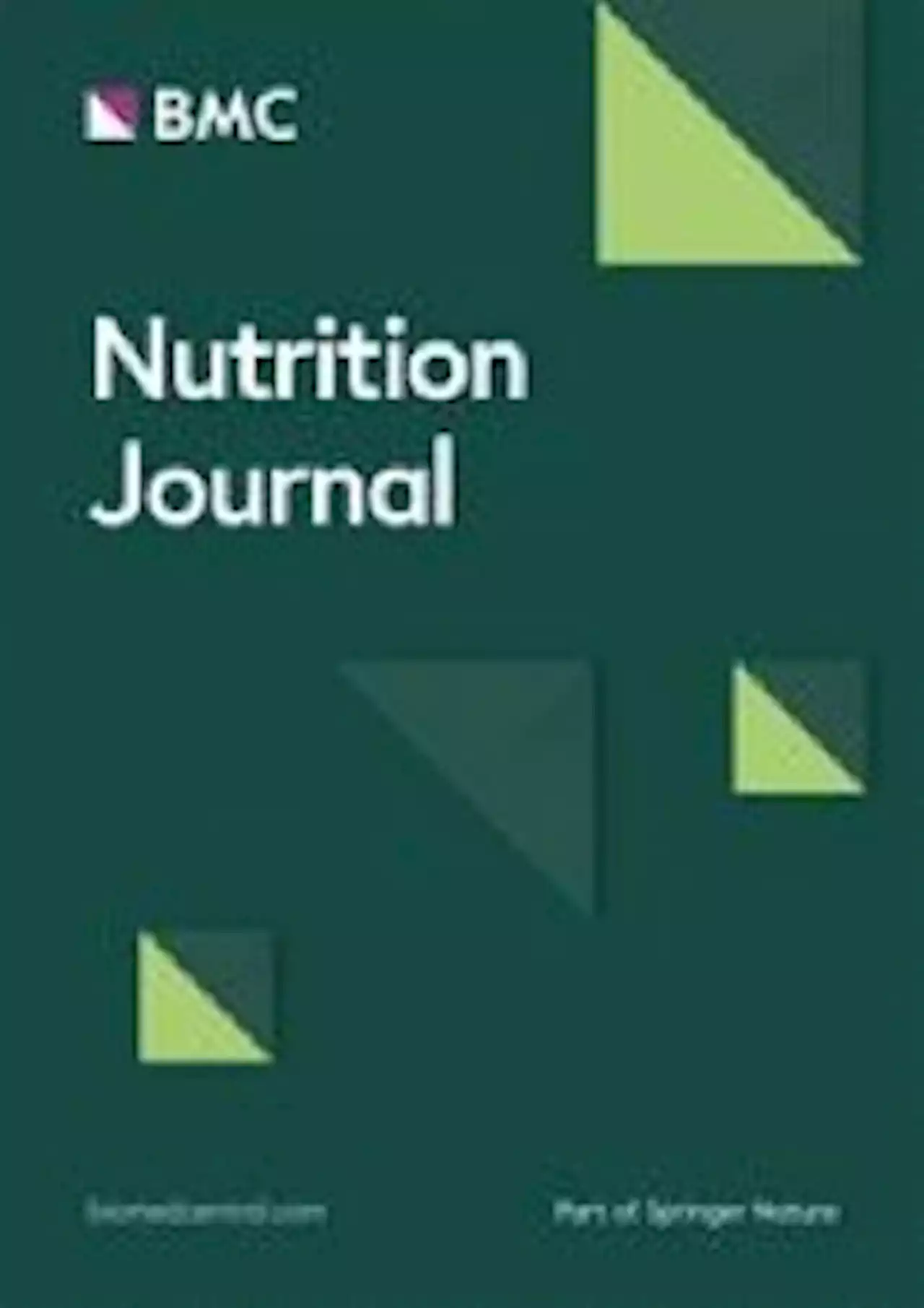Study shows an association between sleepapnea and brainvolume
Studies have shown that sleep apnea is related to an increased risk of dementia. A new study looks at the relationship between sleep apnea and brain volume.
The study is published in the May 31, 2023, online issue ofThe study compared people who have the amyloid plaques in the brain that are an early sign of Alzheimer's disease but do not have any"We found that people with amyloid plaques who had more severe sleep apneas also were more likely to have lower volumes in the medial temporal lobe area of the brain, including the hippocampus, which plays a role in memory and Alzheimer's disease," said study author Geraldine Rauchs, Ph.D.
Ireland Latest News, Ireland Headlines
Similar News:You can also read news stories similar to this one that we have collected from other news sources.
 Energy drinks may stunt muscle repair, new study suggestsEnergy drinks impede muscle regeneration and reduce physical performance. This study provided evidence of an inhibitory effect on myogenic differentiation and highlighted potential concerns for athletes and fitness enthusiasts.
Energy drinks may stunt muscle repair, new study suggestsEnergy drinks impede muscle regeneration and reduce physical performance. This study provided evidence of an inhibitory effect on myogenic differentiation and highlighted potential concerns for athletes and fitness enthusiasts.
Read more »
 Volunteering May Boost Kids' Well-Being, Study SaysIt's associated with better mental and physical health.
Volunteering May Boost Kids' Well-Being, Study SaysIt's associated with better mental and physical health.
Read more »
 4,000 year-old plague DNA found in Britain may boost study of infectious diseasesScientists drilled into teeth and extracted dental pulp, which can trap DNA remnants of infectious diseases.
4,000 year-old plague DNA found in Britain may boost study of infectious diseasesScientists drilled into teeth and extracted dental pulp, which can trap DNA remnants of infectious diseases.
Read more »
 Little-known STI may increase the risk of cervical cancer in women, study findsThe Trichomonas Vaginalis (TV) infection damages cervical tissue, creating lesions and allowing a 'favourable environment' for the Human Papillomavirus (HPV) to flourish.
Little-known STI may increase the risk of cervical cancer in women, study findsThe Trichomonas Vaginalis (TV) infection damages cervical tissue, creating lesions and allowing a 'favourable environment' for the Human Papillomavirus (HPV) to flourish.
Read more »
 Interim results of the effectiveness of 2022-2023 influenza vaccine from six studies conducted in EuropeInterim results of the effectiveness of 2022-2023 influenza vaccine from six studies conducted in Europe Eurosurveillanc vaccine influenza europe studies efficacy effectiveness
Interim results of the effectiveness of 2022-2023 influenza vaccine from six studies conducted in EuropeInterim results of the effectiveness of 2022-2023 influenza vaccine from six studies conducted in Europe Eurosurveillanc vaccine influenza europe studies efficacy effectiveness
Read more »
 Fruit, vegetable, and fruit juice consumption and risk of gestational diabetes mellitus: a systematic review and meta-analysis - Nutrition JournalBackground Fruit, vegetable, and fruit juice intake is associated with the risk of gestational diabetes mellitus (GDM). However, the conclusion is limited and conflicted. The purpose of this systematic review and meta-analysis is to investigate the association between fruit, vegetable, and fruit juice consumption and the risk of GDM. Methods To find relevant studies, we searched PubMed, The Cochrane Library, Web of Science, Embase, ScienceDirect, PsycINFO, CINAHL, Ovid, EBSCO, CBM, CNKI, Wanfang Data, and VIP for the report on prospective cohort studies published from inception to April 8, 2022. Summary relative risks (RR) and 95% confidence intervals (Cis) were estimated using a random-effects model. Results A total of 12 studies with 32,794 participants were included in the meta-analysis. Total fruit consumption was associated with a lower risk of GDM (RR = 0.92, 95% CI = 0.86–0.99). Whereas an increasing the consumption of vegetable, including all vegetable (RR = 0.95, 95% CI = 0.87–1.03), starchy vegetable (RR = 1.01, 95% CI = 0.82–1.26), and fruit juice (RR = 0.97, 95% CI = 0.91–1.04) was not associated with a reduction in the risk of GDM. In a dose‒response analysis of eight studies, a 3% reduction in risk of GDM for a 100 g/d increase in fruit consumption (RR = 0.97, 95% CI = 0.96–0.99). Conclusions The findings suggest that higher fruit consumption may reduce the risk of GDM, with a 3% reduction in the risk of GDM for every 100 g/d increase in fruit intake. Higher-quality prospective studies or randomized clinical trials are required to validate the effect of different variations of fruits, vegetables, and fruit juice consumption on the risk of GDM.
Fruit, vegetable, and fruit juice consumption and risk of gestational diabetes mellitus: a systematic review and meta-analysis - Nutrition JournalBackground Fruit, vegetable, and fruit juice intake is associated with the risk of gestational diabetes mellitus (GDM). However, the conclusion is limited and conflicted. The purpose of this systematic review and meta-analysis is to investigate the association between fruit, vegetable, and fruit juice consumption and the risk of GDM. Methods To find relevant studies, we searched PubMed, The Cochrane Library, Web of Science, Embase, ScienceDirect, PsycINFO, CINAHL, Ovid, EBSCO, CBM, CNKI, Wanfang Data, and VIP for the report on prospective cohort studies published from inception to April 8, 2022. Summary relative risks (RR) and 95% confidence intervals (Cis) were estimated using a random-effects model. Results A total of 12 studies with 32,794 participants were included in the meta-analysis. Total fruit consumption was associated with a lower risk of GDM (RR = 0.92, 95% CI = 0.86–0.99). Whereas an increasing the consumption of vegetable, including all vegetable (RR = 0.95, 95% CI = 0.87–1.03), starchy vegetable (RR = 1.01, 95% CI = 0.82–1.26), and fruit juice (RR = 0.97, 95% CI = 0.91–1.04) was not associated with a reduction in the risk of GDM. In a dose‒response analysis of eight studies, a 3% reduction in risk of GDM for a 100 g/d increase in fruit consumption (RR = 0.97, 95% CI = 0.96–0.99). Conclusions The findings suggest that higher fruit consumption may reduce the risk of GDM, with a 3% reduction in the risk of GDM for every 100 g/d increase in fruit intake. Higher-quality prospective studies or randomized clinical trials are required to validate the effect of different variations of fruits, vegetables, and fruit juice consumption on the risk of GDM.
Read more »
